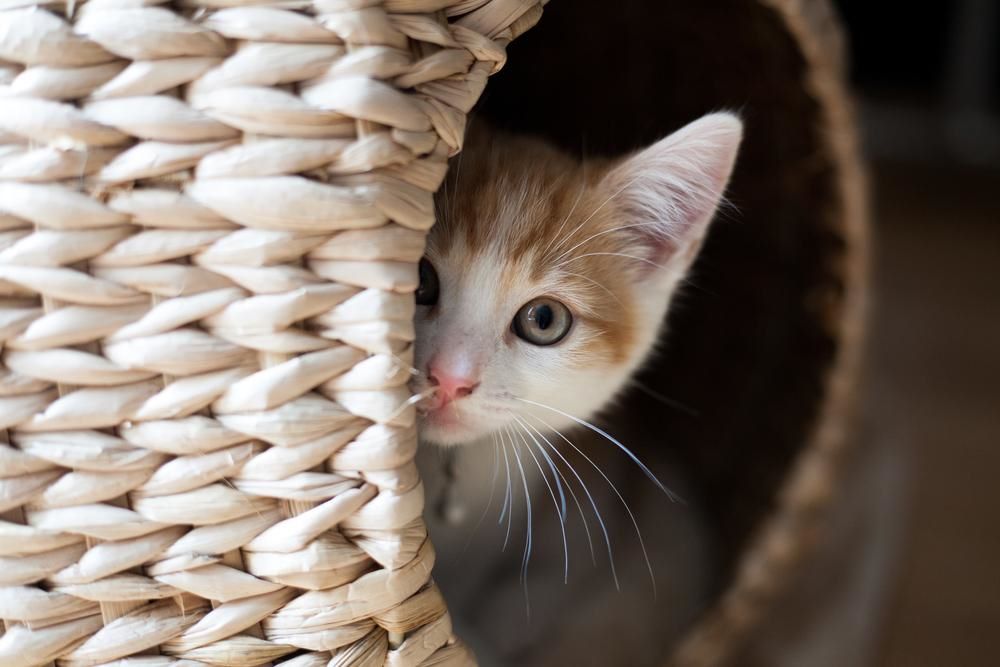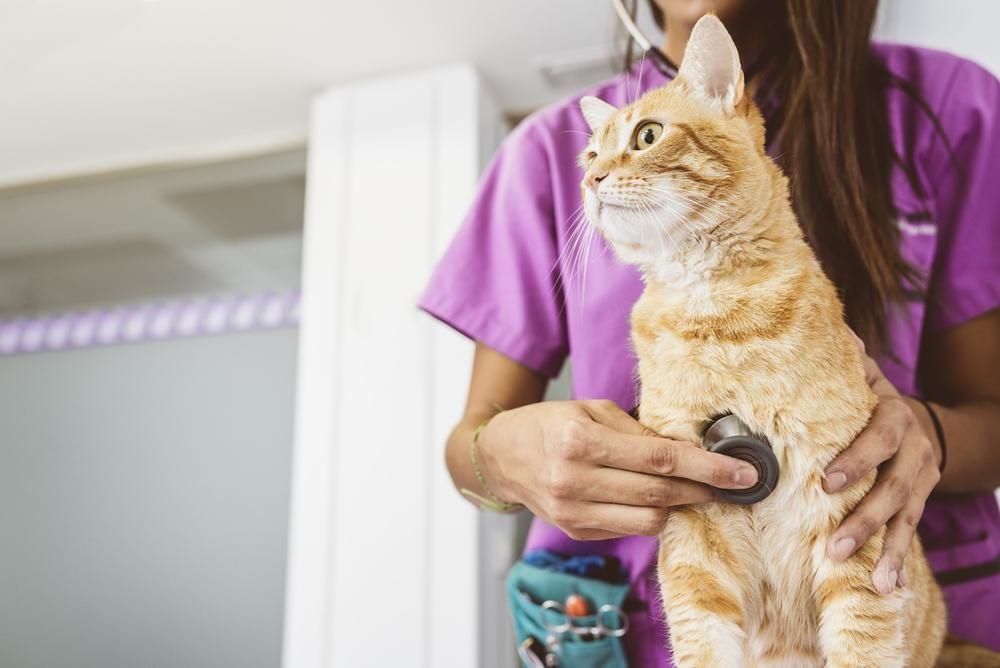

If your cat is urinating outside the litter box, you're probably concerned and frustrated at the same time. Cat urine is challenging to clean, and inappropriate urination is a difficult behavior to stop. In fact, inappropriate urination in cats is one of the leading reasons cats are returned to shelters. So, why do cats urinate inappropriately, and what can you do?
If you notice any urinary issues — including your cat not peeing or large amounts of urine outside the litter box — it's important to work with your veterinarian to get a diagnosis as soon as possible. In some cases, inability to urinate can signal a life-threatening condition that requires quick medical intervention to reverse. If you're not sure what signs to look for, what causes litter box issues in the first place or how you can best support your cat, you've come to the right place.

Signs Your Cat May Have a Urinary Concern
One of the most obvious signs your cat has a urinary issue is urinating outside the litter box. If this is the case for your cat, try to observe them in the act. Sometimes, urinating outside the litter box can be confused with a behavior called urine spraying, so observing your cat can help you differentiate the two.
Urine spraying more often occurs on vertical surfaces, such as walls and furniture, while inappropriate urination happens on the floor, carpet or other horizontal surface. These conditions often have different causes, so understanding how to distinguish them is important to getting your cat the care they need.
Other signs of a urinary issue can include:
Bloody urine
Urine with a strong odor
Spending more time in the litter box
Making frequent trips to the litter box
Posturing to urinate with little or no urine coming out (straining to urinate)
Licking below the base of the tail
Crying or howling (often during urination attempts)
Excessive thirst
Vomiting
Loss of appetite
Hiding
Increased aggression
Discomfort when being picked up or touched on the belly
All of these signs can indicate a urinary issue, but some can point to other health conditions as well. If you notice any of the above, make an appointment with your veterinarian as soon as possible.
If your male cat is straining to urinate or showing other signs of a urinary issue, take them to the nearest emergency animal hospital as soon as possible. Male cats are at higher risk of a painful and life-threatening condition called urethral blockage, which can escalate to fatality within as little as 48 hours.
Causes of Inappropriate Urination in Cats
Why do cats urinate inappropriately? Stress is a primary cause of bladder and urination issues. Cats can develop a maladaptive stress response, resulting in abnormal litter box behaviors. This is called feline interstitial cystitis, or felineidiopathic cystitis (FIC). FIC is part of a larger systemic disorder called Pandora syndrome, which results from exposure to stress.
FIC is generally seen in young or middle-aged cats of both sexes, but it can cause more severe issues in males. Signs include bloody urine, straining to urinate and going outside the litter box during periods of heightened stress. FIC is a diagnosis of exclusion, meaning your veterinarian will need to rule out all other causes of inappropriate urination in cats before diagnosing your cat with FIC.
Cats with FIC are more likely to be:
Indoor-only
Members of a multicat household
Described as nervous or a "scaredy-cat"
Other Causes of Urinary Issues
Other conditions that can cause inappropriate urination include:
Urethral blockage
Urinary stones
Urinary system trauma
Neurological disease
Anatomical abnormalities due to birth defects
Diabetes
Cushing's disease
Hyperthyroidism
Constipation
If you notice any signs of a urinary concern, seek veterinary care. Your vet can run the tests needed to determine what's going on with your cat.

Diagnosing Inappropriate Urination in Cats
If your cat is experiencing anything that looks like a urinary issue, take them to the veterinarian as soon as possible. Some diseases that cause urinary issues are life-threatening, while others are painful or distressing for your cat.
At your appointment, your veterinarian will ask you questions about your cat's health and home environment and conduct a full physical exam. They may also order laboratory tests as necessary, such as urine tests, blood tests and imaging tests like radiology (X-rays) or an abdominal ultrasound. Any further testing or treatment will depend on the results of those initial tests.
What to Do About Inappropriate Elimination and Other Urinary Issues
So, how to stop inappropriate cat urination? Most urinary concerns require veterinary intervention.
If your cat is diagnosed with FIC, your vet will work with you to help reduce your cat's distress. FIC isn't curable, but it can be managed with a combination of pain medication for flare-ups, modifications to your cat's environment and other methods to minimize stress.
In general, here are some ways you can support healthy urinary habits at home:
Scoop your cat's litter box every day.
Provide one more litter box than the number of cats in your home (e.g., if you have two cats, provide three litter boxes).
Set up multiple water stations in the home and use a cat water fountain, which can entice some cats to drink more and encourage healthy hydration.
Follow your veterinarian's nutritional recommendations, such as wet food or a therapeutic food designed for urinary disorders.
Boredom can also cause stress in cats, which may increase their risk of urinary issues. Play with your cat every day — four to five short (15-minute) play sessions are best. You can also encourage mental stimulation by providing puzzle feeders, interactive toys and window perches.
Talk to Your Vet About Nutrition
When it comes to how to stop inappropriate cat urination, getting your cat the diagnosis and veterinary care they need is key. For most feline urinary conditions, nutrition is a large part of the standard of care. Targeted nutrition can help reduce the risk of future episodes. For example, some urinary health cat foods moderate your cat's intake of specific minerals that can cause urinary crystals to form. Others are formulated to help reduce stress. So, talk with your veterinarian about which option is best for your cat. Together, you can support your cat's well-being and get them on track to living their best life.






















